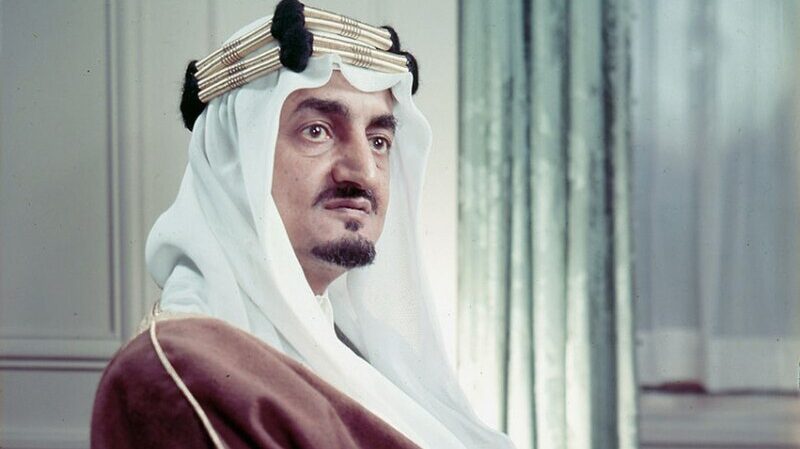The Assassination of King Faisal: A Tragic Turning Point in Saudi History
The Fateful Day
On March 25, 1975, a tragic event shook Saudi Arabia and the world. King Faisal bin Abdulaziz Al Saud, one of the most respected leaders of the kingdom, was assassinated in Riyadh by his own nephew, Prince Faisal bin Musaed. The assassination, which took place in broad daylight during a royal audience, marked a significant turning point in Saudi history. It left the nation in shock and raised many unanswered questions about the motives behind the attack.
King Faisal was conducting his usual duties, meeting officials and foreign dignitaries. Among those waiting for an audience was his nephew, Prince Faisal bin Musaed. As the King greeted him in the traditional manner, the prince suddenly pulled out a small pistol and fired two shots at point-blank range. A third shot was attempted but missed. King Faisal was immediately rushed to the hospital, but despite all medical efforts, he succumbed to his injuries.
Who Was Prince Faisal bin Musaed?
Prince Faisal bin Musaed had recently returned to Saudi Arabia after spending years in the United States for his education. He had studied at the University of Colorado and the University of California, Berkeley, where he was known to have had a Westernized lifestyle. Some reports suggest that he struggled with mental health issues, while others believe he harbored political and personal grievances.
Eyewitnesses described him as calm and composed on the day of the assassination, making the event even more shocking. His immediate arrest by security forces led to intense speculation about his motive. Many theories emerged, but the exact reason behind his decision to assassinate King Faisal remains a subject of debate.
Motive and Theories Behind the Assassination
Saudi authorities launched an extensive investigation following the assassination. Prince Turki Al-Faisal, the former head of Saudi intelligence, later stated that the investigation found no evidence of foreign involvement. Instead, it was deemed an act carried out by Prince Faisal bin Musaed alone.
Several theories have surfaced regarding his motive:
- Revenge for His Brother’s Death: One of the most widely believed theories is that Prince Faisal was seeking revenge for his brother, Khalid bin Musaed, who was killed by Saudi security forces during a protest against the introduction of television in the kingdom. King Faisal had introduced television as part of his modernization efforts, which was met with resistance by conservative factions within the country, including members of his own family.
- Personal Grievances and Mental Health Issues: Some believe that Prince Faisal had deep personal grievances and possibly suffered from mental health conditions. His behavior prior to the assassination was reportedly erratic, leading some to speculate that his actions were not purely political but also personal.
- Western Influence: Having spent time in the United States, some have speculated that Prince Faisal was influenced by Western ideologies, which might have put him at odds with the deeply conservative Saudi leadership at the time. However, this theory remains largely speculative.
Aftermath and National Mourning
The assassination of King Faisal plunged Saudi Arabia into mourning. The nation grieved the loss of a leader who had been instrumental in modernizing the country, strengthening Islamic unity, and managing Saudi Arabia’s oil wealth with strategic diplomacy.
Following the assassination, King Faisal’s brother, Crown Prince Khalid, was swiftly declared the new King of Saudi Arabia. The transition of power was smooth, ensuring stability during a turbulent period.
As for Prince Faisal bin Musaed, he was put on trial and found guilty of regicide. In accordance with Saudi law, he was publicly executed in Riyadh on June 18, 1975. The execution was carried out by beheading, a method used for capital punishment in the kingdom.
King Faisal’s Legacy
Despite his tragic end, King Faisal left behind a lasting legacy that continues to shape Saudi Arabia today. He is remembered for his efforts in modernizing the country while maintaining its Islamic values. Some of his key achievements include:
- Economic and Social Reforms: King Faisal was instrumental in developing Saudi Arabia’s infrastructure, education, and healthcare systems. He initiated various reforms that helped modernize the country’s economy.
- Oil Diplomacy: During his reign, Saudi Arabia played a crucial role in the global oil market. He led the 1973 oil embargo against the United States and Western allies in response to their support for Israel in the Yom Kippur War. This move significantly impacted global oil prices and showcased Saudi Arabia’s influence on world affairs.
- Islamic Solidarity: King Faisal worked towards uniting the Muslim world and strengthening ties between Islamic nations. He was a strong advocate for Palestinian rights and played a leading role in the Organization of Islamic Cooperation (OIC).
His untimely assassination was a great loss to Saudi Arabia, but his influence remains strong in the country’s policies and development strategies.
Conclusion
The assassination of King Faisal remains one of the most shocking moments in Saudi history. The circumstances surrounding his death continue to spark discussions, but what is undeniable is his profound impact on the kingdom. His contributions to modernization, oil diplomacy, and Islamic unity continue to shape Saudi Arabia’s path in the modern world.
Even today, nearly five decades after his tragic death, King Faisal is remembered as one of Saudi Arabia’s most visionary and transformative leaders.
Do follow gulf magazine on Instagram
for more information click here



